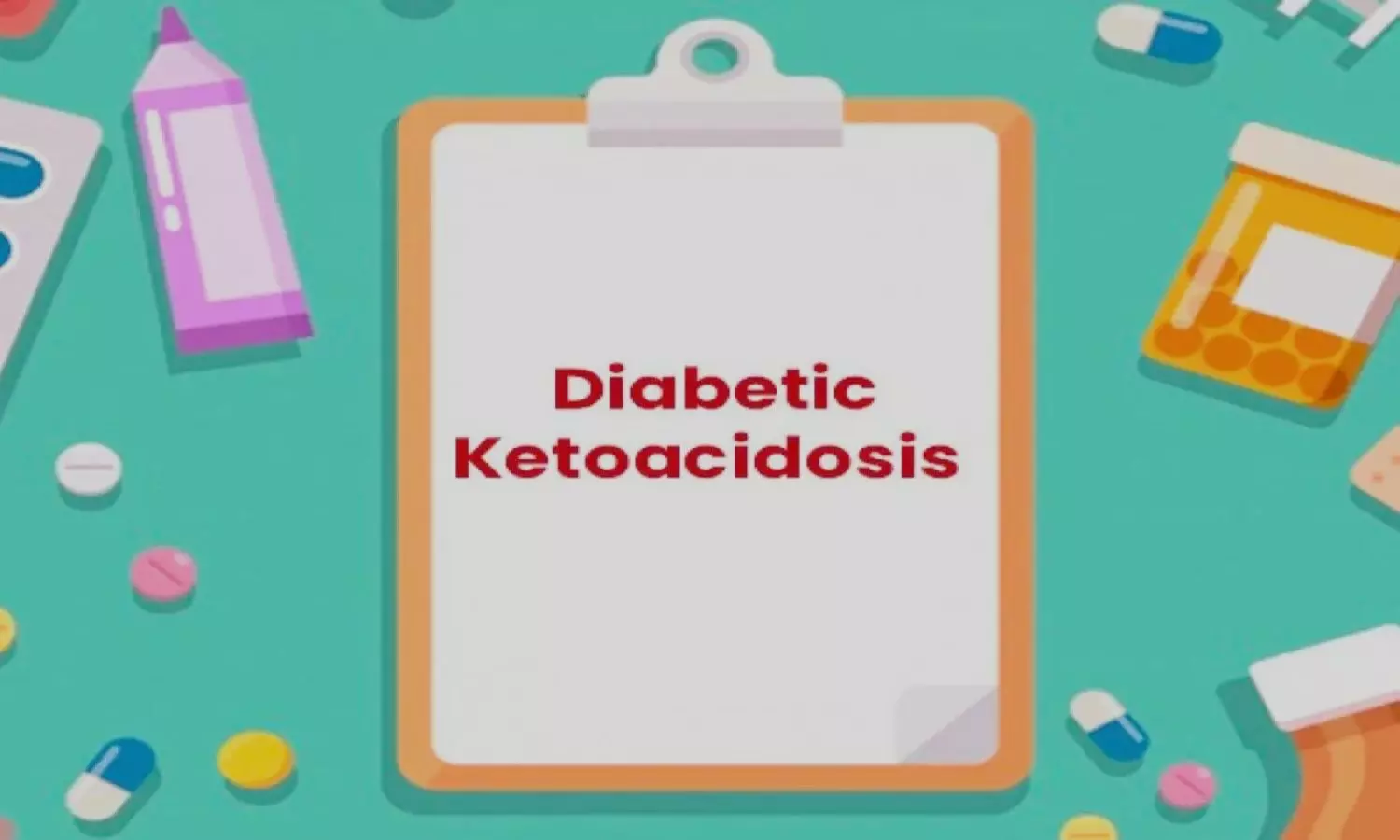SGLT2i-associated ketoacidosis patients receive significantly lower insulin doses vs those with T1D ketoacidosis: JAMA

Australia: A new retrospective cohort study revealed a clinically relevant reduction in the doses of insulin administered over the first 24 hours of treatment in patients with SGLT2 inhibitor-associated diabetic ketoacidosis (DKA) compared with patients with type 1 diabetes DKA.
There seems no clarity on whether the protracted duration of SGLT2 inhibitor DKA is a result of inadequate insulin dosing or the ongoing effect of SGLt2i. The findings of the study were published online in JAMA Network Open.
"Median intravenous (IV) or subcutaneous insulin dose during the initial 24 hours of treatment was 44 units for patients with SGLT2 inhibitor-associated DKA versus 87 units for those with type 1 diabetes DKA," the researchers reported.
Previous studies have shown a difference in the pathophysiology of sodium-glucose cotransporter 2 inhibitors (SGLT2i)–associated DKA and that of T1D DKA. T1D DKA is driven by absolute insulin deficiency, leading to hyperglycemia and ketosis. In contrast, SGLT2i DKA occurs due to a reduction in plasma glucose (PG) from urinary glucose losses, which lowers insulin secretion and stimulates glucagon secretion, leading to ketosis. PG levels in GLT2i DKA are often normal or mildly elevated. The implication is that ketosis and glycemia and ketosis are less closely linked than in T1D DKA.
Despite these differences, the American College of Endocrinology and the American Association of Clinical Endocrinologists recommend treatment with the same protocols as T1D. This may result in hypoglycemia when patients receive fixed-dose insulin infusion or inadequate insulin dosing and reduced ketone clearance when patients receive dynamic insulin infusions.
Against the above background, Mahesh M. Umapathysivam, Flinders Medical Centre, Adelaide, South Australia, Australia, and colleagues performed a retrospective cohort study to examine the natural history of SGLT2i DKA and its response to treatment.
To assess the suitability of T1D DKA protocols use, particularly the dynamic insulin infusion protocol, in SGLT2i DKA, the research team compared bicarbonate and ketone level change after 24 hours of treatment in individuals presenting with SGLT2i DKA and T1D DKA.
The study was conducted across two tertiary centers with a research interest in SGLT2 inhibitor-associated DKA, with input from the endocrine team in all cases.
The following were the key findings of the study:
- The researchers identified thirty-seven episodes of SGLT2i DKA (n = 27) and SGLT2i-associated ketosis (n = 10), and 19 episodes of T1D DKA were identified in the specified age range.
- The groups were well matched for age and sex, but the SGLT2i group had significantly higher body weight, lower HbA1c levels, and a significantly lower admission PG levels.
- Patients with SGLT2i DKA had milder DKA versus T1D-DKA (median ketone peak: 5.3 versus 6.5 mmol/L).
- The SGLT2i group had delayed resolution (median time: 36 versus 18 hours) compared with the T1D group.
- Despite having a greater median weight (81.8 versus 67.7 kg), patients with SGLT2i DKA received a significantly lower insulin dose (intravenous and subcutaneous) in the first 24 hours of treatment compared with patients with T1D DKA (median dose: 44.0 versus 87.0 units).
- The regression model was statistically significant. Change in ketone concentration over the first 24 hours was significantly associated with baseline insulin therapy (β = 6.67), lower bicarbonate nadir (β = −0.56), and higher admission PG level (β = 0.30) in SGLT2i DKA.
"Based on the evidence presented and the safety profile of IV dextrose, it would be reasonable to increase dextrose infusion rates and concentration to allow increased insulin administration and suppression of ketosis," the researchers wrote.
The study's limitations are its retrospective nature and size. Prospective randomized clinical trial evidence is lacking.
Reference:
Umapathysivam MM, Morgan B, Inglis JM, et al. SGLT2 Inhibitor–Associated Ketoacidosis vs Type 1 Diabetes–Associated Ketoacidosis. JAMA Netw Open. 2024;7(3):e242744. doi:10.1001/jamanetworkopen.2024.2744
from Medical News, Health News Latest, Medical News Today - Medical Dialogues | https://ift.tt/85Jflvm
Comments
Post a Comment